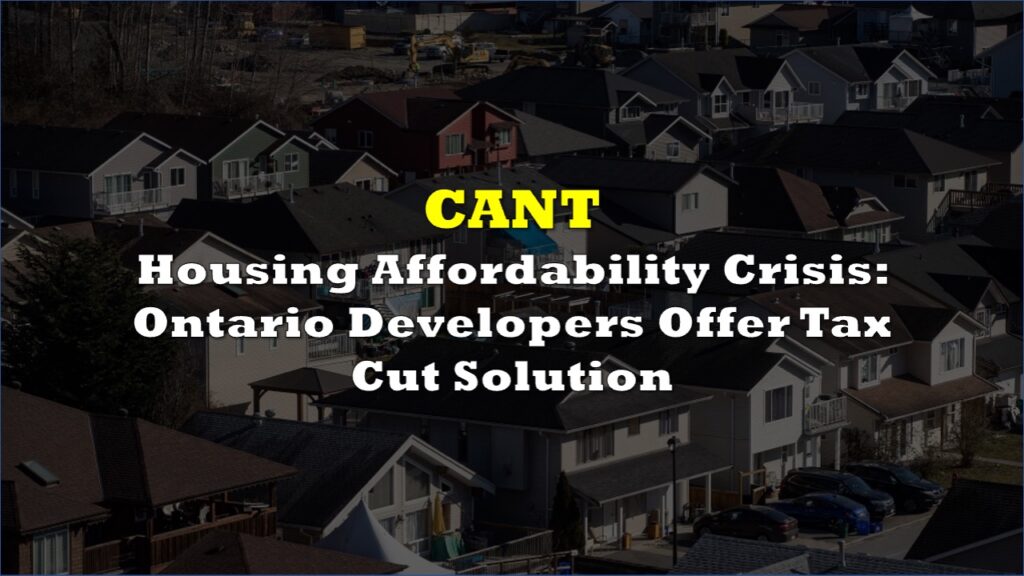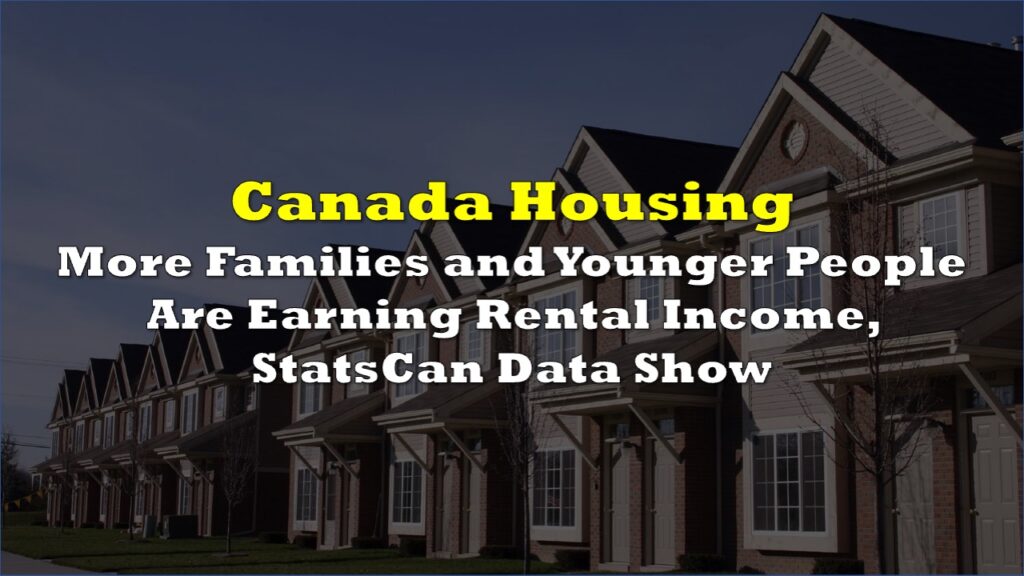Only months after the new laws went into effect, the Canadian government is removing some limitations on foreigners acquiring residential property.
“To enhance the flexibility of newcomers and businesses looking to add to Canada’s housing supply, the Government of Canada is making amendments to the Regulations, to expand exceptions to allow Non-Canadians to purchase a residential property in certain circumstances,” the Canada Mortgage and Housing Corporation said.
The amendments to the regulations come just three months after Ottawa issued regulations regarding the restriction on foreign homebuyers as the new real estate law is expected to take effect for two years starting 2023.
In June 2022, Parliament approved the Prohibition on the Purchase of Residential Property by Non-Canadians Act, which prohibits non-Canadians from purchasing property. The law, which went into effect at the beginning of this year, prohibits non-Canadians from purchasing residential property in Canada for two years. The limitations were part of a Liberal commitment made during the federal election campaign in 2021, in response to soaring housing prices.
Non-Canadians who violate the restriction face a $10,000 punishment and may be forced to sell their property.
But after the announcement of the much-criticized ban on foreign homebuying, Ahmed Hussen, Minister of Housing and Diversity and Inclusion, released fresh amendments on the regulations governing the law.
Non-Canadians with work permits or authorized to work in Canada can now acquire residential property. To be eligible, they must have at least 183 days left on their work permit or work permission and acquire only one home.
This exception also allows non-Canadians to buy residential property for development purposes. The modifications also expand the Act’s current exclusion for publicly traded corporations to publicly traded entities created under the laws of Canada or a province and controlled by a non-Canadian.
A provision is also being abolished so that the prohibition does not apply to all residential and mixed-use lands. Non-Canadians can now buy vacant land zoned for residential or mixed use and utilize it for any purpose, including residential development.
The control threshold for privately owned corporations or privately held enterprises incorporated under the laws of Canada or a province and controlled by a non-Canadian has been increased from 3% to 10% for the purposes of the prohibition.
“These amendments will allow newcomers to put down roots in Canada through home ownership and businesses to create jobs and build homes by adding to the housing supply in Canadian cities,” Hussen said in the news release.
Incredible. An already weak restriction for banning foreign home buyers which allowed several exemptions but now has widened the scope. Why even have it in place? https://t.co/wzvmKROJ6z
— Ajdin Dautović (@AjdinDautovic) March 28, 2023
The modifications were implemented on the same day that the Canada Revenue Agency (CRA) abolished late fines and interest on the Underused Housing Tax (UHT), which also went into effect on January 1. Non-resident, non-Canadians are required to pay 1% of the value of any vacant or underutilized property in Canada each year.
In a news release, the CRA stated that it was waiving the fines because it “understands that there are unique challenges for affected owners in the first year” of the tax.
Individuals who are subject to the tax will now have until October 31 to file their UHT returns and payments without penalty.
Although the deadline for completing the UHT return and paying the UHT payable remains April 30, 2023, no penalties or interest will be assessed on UHT filings and payments received by the CRA before November 1, 2023.
Will this help foreign pro-athletes?
When the rule went into effect on January 1, the only persons exempted from it were Canadians living overseas, refugees, or people on work visas who had worked or filed taxes in Canada three of the previous four years and did not already own residential property in the nation.
Ice hockey pro Mattias Ekholm, who was transferred from the Nashville Predators to the Edmonton Oilers, said earlier this month that the new regulation prevents him and other non-Canadian residents from acquiring residential property until 2024. This also applies to any foreign player who previously played for an American NHL or European team and wishes to join a Canadian team when free agency begins in July.
This became problematic for agents and team managers. Gold Star Hockey’s Dan Milstein, who stated his displeasure with the regulation the day it went into force, doubled down on his stance.
“Compare it to other situations and ask yourself: Would you go to a country that takes more than half your money in taxes and doesn’t allow you to buy a home for your family to live in?” he said via text message to Sportsnet.
RSG Hockey’s Alain Roy, who estimates that around 30% of his 71 NHL clients under contract are from outside Canada, was cautious in his response, commenting that “it could be issue” for any non-Canadian players “looking at longer-term contracts” in Canada.
“I think for our players, they’re coming in here to work, they’re not coming here to buy properties and make investment on it,” said Ottawa Senators General Manager Pierre Dorion. “They’re coming here to buy properties to have a home and a foundation they can go to and move from there. There should be some kind of exemption for people who are working and trying to provide financial resources for their family.”
Montreal Canadiens General Manager Kent Hughes also weighed in, calling the new law “challenging.”
“I think I can appreciate the reason of trying to control the price of real estate for the people who live here,” he commented. “I don’t know to what extent those prices are driven up by people who are from here versus people who are investing or getting their money out of foreign countries,” adding his hope to “find some compromise.”
With the amendments now allowing those who hold a work permit or are authorized to work in Canada under the Immigration and Refugee Protection Regulations to purchase residential property, the law still provides ambiguity for pro-athletes being traded from other countries–most especially with the eligibility limit only restricted to work permit holders that have 183 days or more of validity remaining.
Information for this briefing was found via Canada Mortgage and Housing Corporation and the sources mentioned. The author has no securities or affiliations related to this organization. Not a recommendation to buy or sell. Always do additional research and consult a professional before purchasing a security. The author holds no licenses.










One Response
It’s almost like commodifying housing is a terrible way to run an economy.